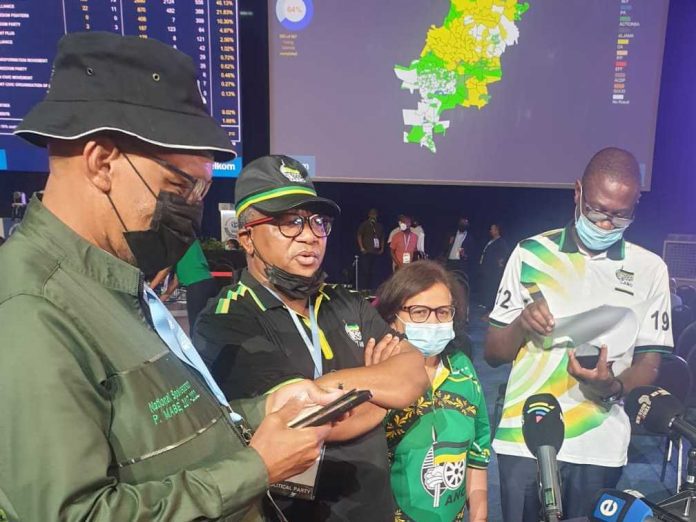Johannesburg – There is no outright winner in the battle of Nelson Mandela Bay Metro despite fierce campaigning by the DA and the ANC.
Both parties have attained 39 percent of the total votes of the Metro, with each party receiving 48 seats out of a total of 120 seats in the council.
The two political parties were fiercely campaigning for an absolute majority following disastrous coalition arrangements that the Metro underwent between 2016 and 2021 council.
But instead were plunged further down from what they achieved in 2016 local government elections with the DA suffering a major loss of nine seats it previously held, while the ANC is down by two seats from the same elections.
The DA and the ANC have been put in a position where they will have to negotiate with smaller parties in order to form a coalition government.
The EFF remains in third place with an additional two seats from the six seats it attained during the 2016 elections, despite losing its single ward to the ANC.
The seat allocation in the Nelson Mandela Bay Metro are as follows: the ANC 48, DA 48, EFF eight, Northern Alliance who are the newcomers have three seats, ACDP and Patriotic Alliance have grown by a seat each and have two seats respectively, along with other two newcomers in the Metro council, the Freedom Front Plus and the Defenders Of the People, also get two seats each.
UDM which has been the fourth largest party has been reduced to a single seat together with AIC which retained its seat and two other newcomers, Abantu Integrity Movement and the GOOD Party, all have attained a seat.
The council will have 12 political parties represented, up from nine after the 2016 elections.
The 2016 at Nelson Mandela Bay Metro began with the DA-led coalition after it had attained 57 seats and formed the coalition government with the UDM which had two seats, ACDP and COPE, which had a seat each.
That coalition government was dysfunctional as then UDM leader in Nelson Mandela Bay Region, late Mongameli Bobani, who was the deputy mayor of the City and another party councillor voted against coalition decisions.
Although the EFF, which had six councillors was not part of that coalition, it voted in its favour on certain issues, including several failed motions of no confidence against then DA mayor Athol Trollip.
But Trollip was removed in August 2018 after EFF withdrew its support and a DA councillor Victor Manyathi abstained from voting. Its collapse was followed by another coalition that was led by UDM’s as mayor, AIC’s Thsonono Buyeye his deputy, Marlon Daniels from the PA became a Member of the Mayoral Committee but most seats in that mayoral committee went to ANC.
In fightings within that coalition which at times was at loggerheads with the National Treasury and the Eastern Cape Cogta led to its collapse in last December, paving a way for another DA led coalition which appointed Nqaba Bhanga a mayor and UDM’s Luxolo Namette his deputy.
It’s back to negotiating tables for the parties in the Metro and it will be clear in time who emerges with enough support to form a government.
To read more political news and views, click here.
Follow @SundayWorldZA on Twitter and @sundayworldza on Instagram, or like our Facebook Page, Sunday World, by clicking here for the latest breaking news in South Africa. To Subscribe to Sunday World, click here.



